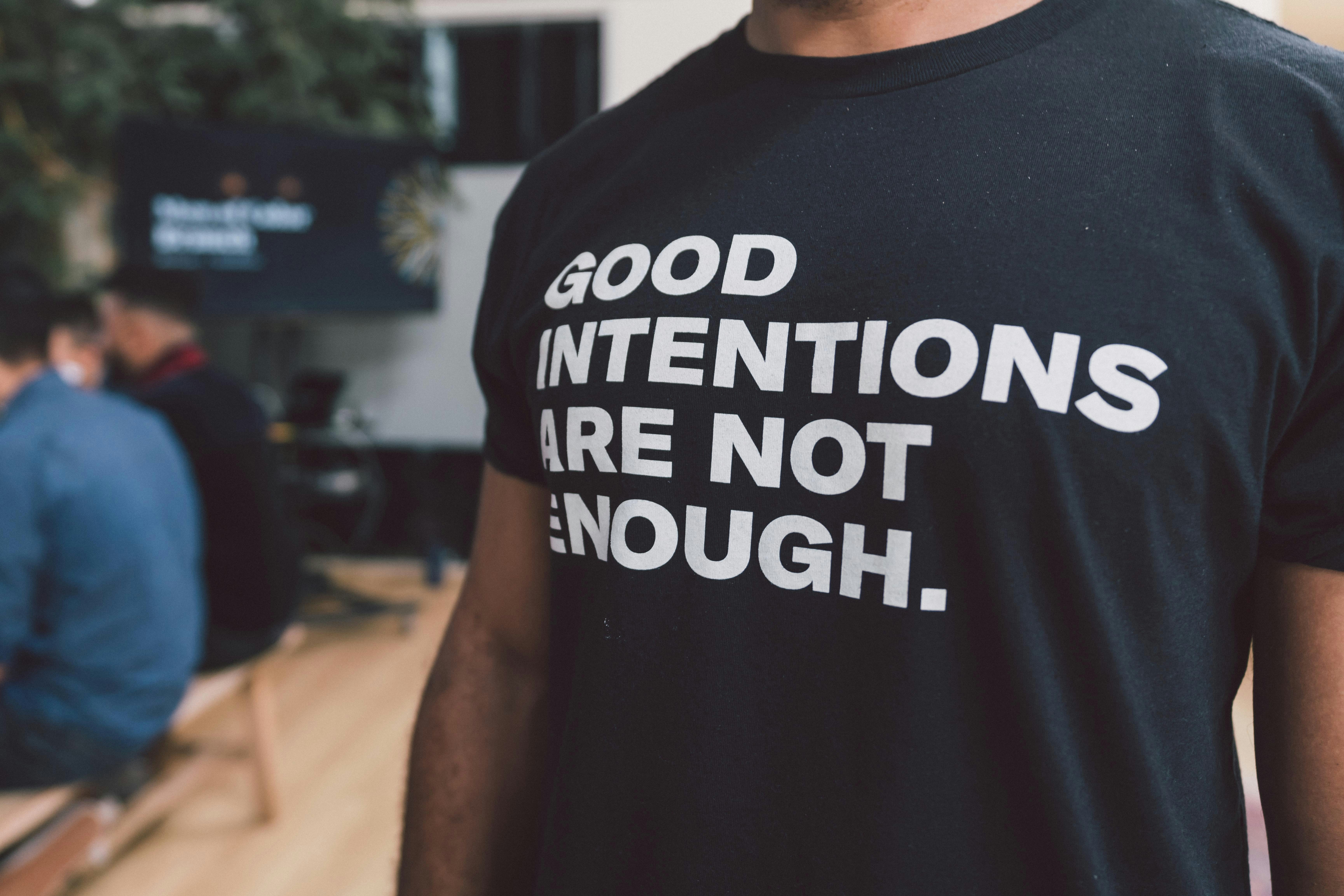
True Allyship: A Guide for Men Supporting Women and Queer Folk
In a world shaped by patriarchy, privilege is often invisible to those who hold it. And yet, allyship - true, deep, conscious allyship - is not about guilt, but rather about responsibility.
It's about using power differently. It's about showing up in ways that are not self-congratulatory, but self-aware. Because if the goal is collective liberation, we cannot leave anyone behind.
Allyship is a lifelong commitment to unlearning, relearning, and showing up with humility. Here's how that can look for men who want to be true allies to women and queer folk:
Start with listening, not leading
Too often, men enter conversations about feminism or queer rights with a saviour complex. They want to lead, fix, or prove they're "not like other men."
But allyship begins with listening. Not defensively. Not performatively. But openly, curiously, and with the willingness to sit in discomfort. Listen to the lived experiences of women, trans, and queer folk without interruption, without centring your own perspective. Understand that your discomfort is not the point - their safety, dignity, and equality is.
Acknowledge your privilege, then act on it
You may not have asked for male privilege, but you do benefit from it. From walking home safely at night to being taken seriously, these advantages are structural.
Acknowledging your privilege is not an act of shame - it's an act of awareness. What matters is what you do next. Do you make room for other voices in the room? Do you question why certain voices are always missing? Allyship asks that you leverage your privilege to challenge systems that favour you.
Make consent a culture, not a conversation
Consent is not just about sex. It's about power, autonomy, and respect in all interactions.
Creating a culture of consent means normalising questions, respecting boundaries, and never assuming access to someone's body, time, or emotional labour. It means being someone who doesn't just understand consent in theory but models it in everyday interactions, setting an example for other men to follow.
Interrogate your masculinity
Patriarchy doesn't just hurt women and queer people. It also teaches men that emotions are weak, vulnerability is shameful, and domination is power.
Being an ally means challenging toxic masculinity within yourself. What parts of masculinity have you inherited that keep you distant, defensive, or dominant? What does healthy masculinity look like to you? How can you create space for softness, uncertainty, and care without feeling lesser?
When you unlearn these harmful ideas, you become freer.
Make room in the room
Whether you're in a boardroom or a friend group, notice who speaks most and who gets interrupted. Step back so others can step forward. Pass the mic. Give credit. Amplify voices.
In spaces where women or queer folks are being undermined, don't wait for them to speak up. Use your voice, especially when it's risky for others to do so. Allyship is often inconvenient. If it's always comfortable, it's probably not allyship.
Don't expect emotional labour
It's not the job of women or queer people to educate you. Learn from the abundance of resources already available - books, podcasts, films, and more.
When someone does choose to share their experience with you, treat it like a gift. Don't debate, deflect, or demand more. Just listen. And be grateful.
Call out your circle
Allyship isn't just how you treat women or queer folk. It's how you hold other men accountable.
Call out your friends when they make sexist jokes. Challenge homophobia when it shows up as "banter." Don't be the quiet one who disapproves silently. Be the one who disrupts the pattern.
Yes, you might lose social currency. Yes, you might get called "soft" or "serious." But allyship is about doing what's right.
Make It Intersectional
Being an ally to women doesn't mean being an ally only to women who look like your sister, or queer people who dress and speak like you.
Understand how caste, class, disability, race, and religion intersect with gender and sexuality. Centre those at the margins. Follow Dalit queer voices. Learn from trans women. Don't reduce "allyship" to a single axis of identity.
Support with more than words
Retweets are nice. So are Instagram stories. But allyship has to move offline.
Support women- and queer-led businesses. Donate to organisations working on gender justice. Offer your time, skills, or resources.
Your allyship can show your wallet, your calendar, and your commitments!
Accept that you will mess up - and learn from it
You will get it wrong. You will say something problematic. You will be called out. That doesn't make you a bad person - it makes you a human learning a new language.
What matters is how you respond. Can you apologise without being defensive? Can you take feedback without collapsing? Can you stay in the room after being called in?
That's the work. And it never ends.
Conclusion
You show it in how you show up. When no one is watching. When it's hard. When it's uncomfortable.
This is not about being a "good guy." This is about being someone who contributes to a world that's safer and kinder- for everyone.
Because when women and queer folks are free, everyone breathes easier.
And that? That's a future worth fighting for.
If you or somebody you know is struggling with something difficult and needs to get in touch with a therapist, consider reaching our Support and Engage verticals for affordable and inclusive help!
Like our content? Please show us some support by sharing and up-voting!
Image Credits: Unsplash
